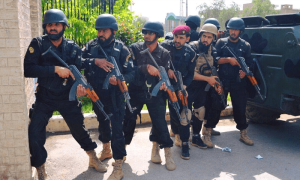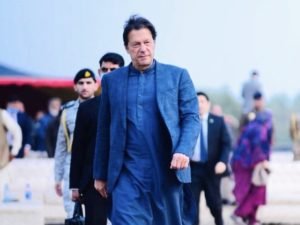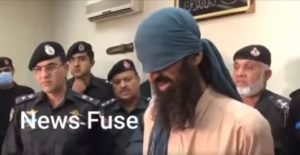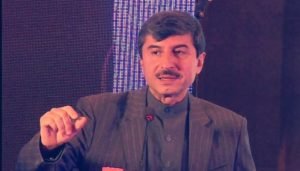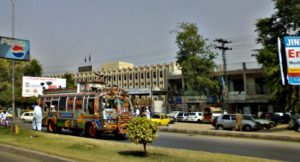The history of Pashto literature spreads over five thousands years having its roots in the oral tradition of tapa. However, the first recorded period begins with Bayazid Ansari (1526-74), who founded his own Sufi school of thoughts and began to preach his beliefs. He gave Pashto prose and poetry a new and powerful tone with a rich literary legacy. Khair-ul-Bayan, oft-quoted and bitterly criticized thesis, is most probably the first book on Sufism in Pashto literature. Among his disciples are some of the most distinguished poets, writers, scholars and sufis, like Arzani, Mukhlis, Mirza Khan Ansari, Daulat and Wasil, whose poetic works are well preserved. Akhund Darweza (1533- 1615), a popular religious leader and scholar gave a powerful counterblast to Bayazid’s movement in the shape of Makhzanul Islam. He and his disciples have enriched the Pashto language and literature by writing several books of prose.
The second period is perhaps the most prolific and glorious one. Khushal Khan Khattak (1613-89), father of Pashto, is the central figure of this period. He introduced new forms and modern trends in Pashto literature. The Persian ghazal, rubai and masnavi influenced the Pashto poets and writers of this period. The Sufism of Hafiz Shirazi found an echo in Rahman Baba’s works. Similarly Abdul Qadir Khattak, Ashraf Khan Hijri, Kazim Khan Shaida, Ma`azullah Khan, Ahmad Shah Abdali and many others have left valuable treasure of literature in Pashto. This period was dominated by poetry, but prose also held an important place. Romantic stories and versified fiction gained popularity towards the end of this period and continued with some modifications throughout the second period and even into the third which reached in the evolution of Pashto literature came to a close with the death of great warrior-king and poet, Ahmad Shah Abdali. Political rivalries were at their worst during this period. The decline of Mughal hegemony in India, on the one hand and the rise of Marhattas and Sikhs not to speak of the British machination in south-east India and Russian incursions greatly changed the outlook of people.
The fourth period begins with the dawn of the twentieth century. The Khilafat and Hijrat Movements gave rise to a type of poetry that called out to soldiers of freedom. This generation of Amir Hamza Khan Shinwari and Dost Mohammed of young poets enriched the poetry of the period with new idealism. Abdul Akbar Khan Akbar, Ghani Khan, Khadim Mohammad Akbar, Khaliq, Samandar Khan, Rahat Zakheli, Khan Mir Hilali, Makhfi, Sanober Hussain Kakajee, Khan Kamil played an important role in promoting the cause of Pashtoon’s revivalism. The twentieth century proved very fertile, rich and flourishing for Pashto literature because it gave new genres and literary forms like Drama, Short Story, Novel, Takl, Character-Sketch, Travelogue, Reportage, Satire, Azad Nazam and Haiku. A large number of literary organizations also took birth in this century. Olasi Adabi Jirga that is considered as the first ever organized literary organization of Pashto was founded by Sanober Hussain Kakajee, Dost Mohammed Kamil and Amir Hamza Khan Shinwari in 1949.Olasi Adabi Jirga made remarkable contributions to Pashto literature. Literary criticism and research on scientific lines were the two major achievements of this organization. It also produced great men of letters like Qalandar Moomand, Murad Shinwari, Saif-u- Rahman Salim, Hamish Khalil and some others. Qlandar Moomand founded Da Sahu Leekunkew Adabi Maraka in 1962 and rendered invaluable services to Pashto since its inception. Qalandar Moomand compiled the first ever Pashto to Pashto dictionary (Daryab) while Hamish Khalil compiled a comprehensive directory of Pashto poets and writers (Da Qalam Khawandan) containing necessary information about more than three thousand men of letters.
The younger generation of poets carried forward the legacy of these early poets and writers with great enthusiasm. The contributions of Kabul Adabi Tolana and Pashto Academy are immense.
The Afghan scholars, researchers, linguists, historians, poets and writers namely Gul Bacha Ulfat, Adul Hai Habbibi, Adur-Rauf Benawa, Qayam -u- Din Khadim, Adul Shakoor Rashad, Sadiqullah Rashtin and many others have a major share in promoting Pashto language and literature. Aghan issue gave a much wider scope to the flourishing of Pahto literature. In the present day situation, Pashto literature is gaining popularity on foreign media due to the Afghan crisis. It is expected that with the resolution of the Afghan problem, Pashto literature will serve the Pakhtoon, s cause of cultural identity.



